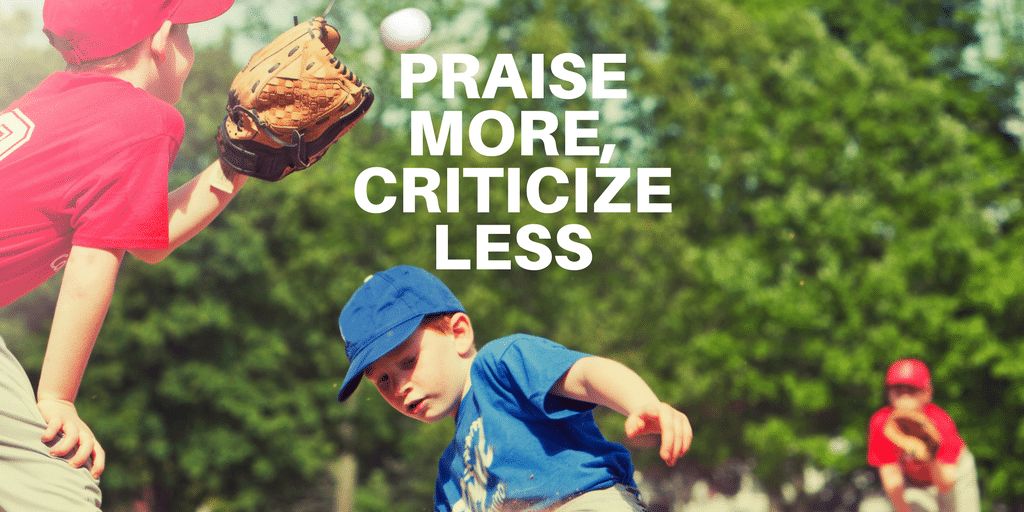Last week included “Opening Day” – the first day of play in the U.S. major league baseball season.
Which reminds me of a conversation between a father and a son.
The son was a little five-year-old. On the first day of the little league baseball season, the boy played his first game. He played well, or at least as well as five-year-olds do. The boy got a hit. He stole a base. He scored a run. He cleanly fielded a ground ball. He made a good throw to first base. The boy’s father was proud.
But, just after the game, the first thing the little boy said to his father was this: “I made an out.”
Why would the little boy emphasize the one bad thing in the game over all the good things?
Because that’s kind of how human beings are wired.
Bad things influence us relatively more strongly than good things.*
And that’s why servant-leaders in the workplace praise more and criticize less.
Indeed, there’s research suggesting that much more praise than criticism is given on high-performing teams.
Jack Zenger and Joseph Folkman write in The Harvard Business Review:
“Negative feedback is important when we’re heading over a cliff to warn us that we’d really better stop doing something horrible or start doing something we’re not doing right away. But even the most well-intentioned criticism can rupture relationships and undermine self-confidence and initiative. It can change behavior, certainly, but it doesn’t cause people to put forth their best efforts.
Only positive feedback can motivate people to continue doing what they’re doing well, and do it with more vigor, determination, and creativity.”**
I agree. That squares with my experience in the workplace.
And on the little league baseball field.
“I made an out” (a bad thing) made a greater impression than all our five-year-old’s accomplishments (good things) during the game.
As emotionally intelligent servant-leaders, we recognize that criticism (a bad thing) has a relatively stronger impact on our followers than praise (a good thing). A single act of criticism demotivates more than a single act of praise motivates.
Even if we seek to “balance” praise and criticism, we actually need to give more praise than criticism.
So, I think that a good servant-leader in the workplace would rather lead with praise than criticism, all else being equal.
What do you think?
Should servant-leaders praise more and criticize less? What does your experience tell you?
As always, we appreciate your views.
Thanks!
Joe
And don’t forget to download our latest ebook, Servant Leadership in the Workplace: A Brief Introduction.It’s free!
_______________________________
* There’s lots of behavioral economics work on this subject. If you are interested in learning more, Daniel Kahneman’s writing is a great place to start.
** Jack Zenger and Joseph Folkman, “Giving Feedback, The Ideal Praise to Criticism Ratio,” The Harvard Business Review, Reprint H00A8U, March 15, 2013.
The HBR article cites another study, now somewhat discredited, standing for the proposition that the ideal praise-to-criticism ration is 5-to-1 – that is, on the best teams, there are five incidents of praise for every one criticism. The authors have backed off that particular ratio, but not the overall idea that praise is more effective than criticism.

